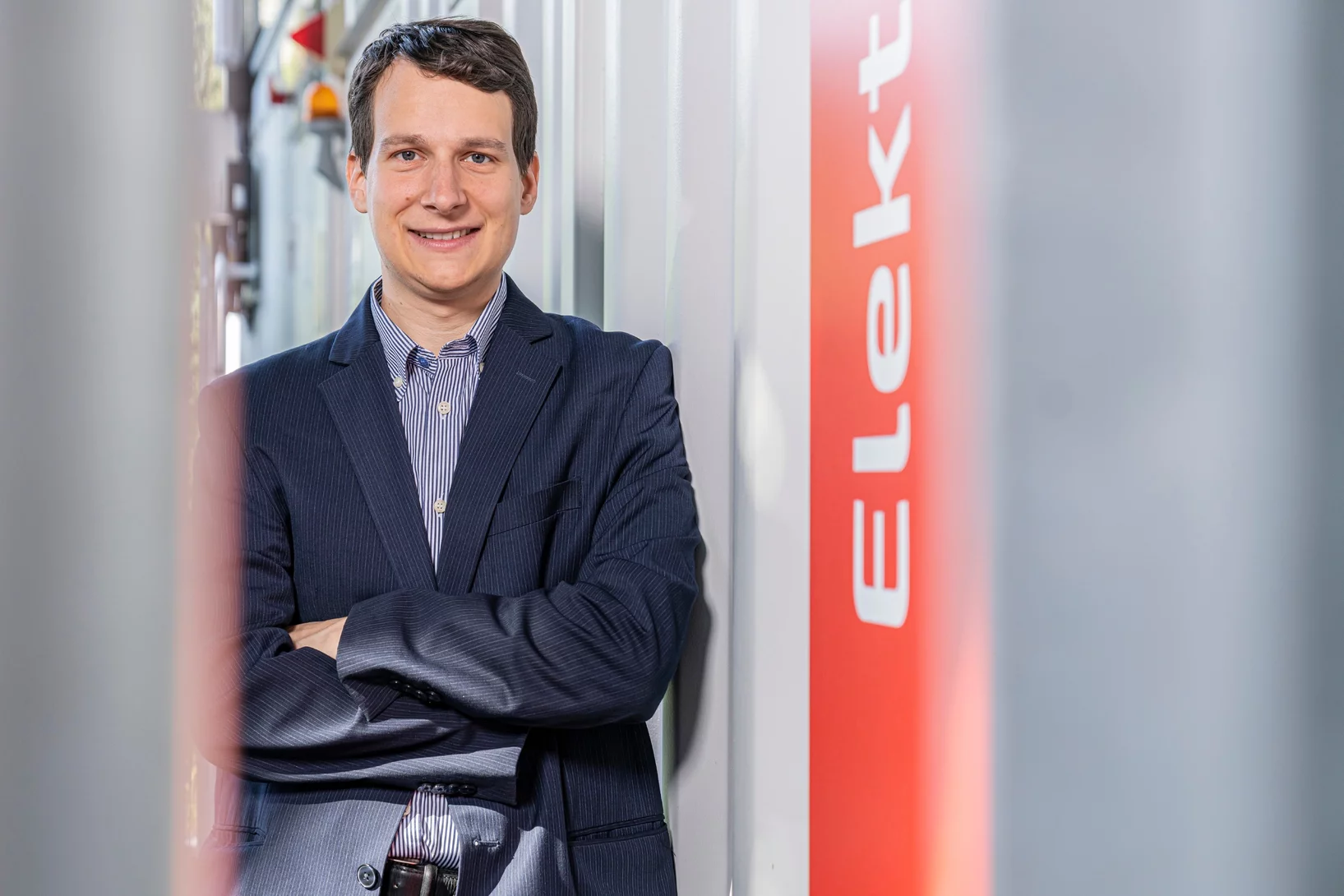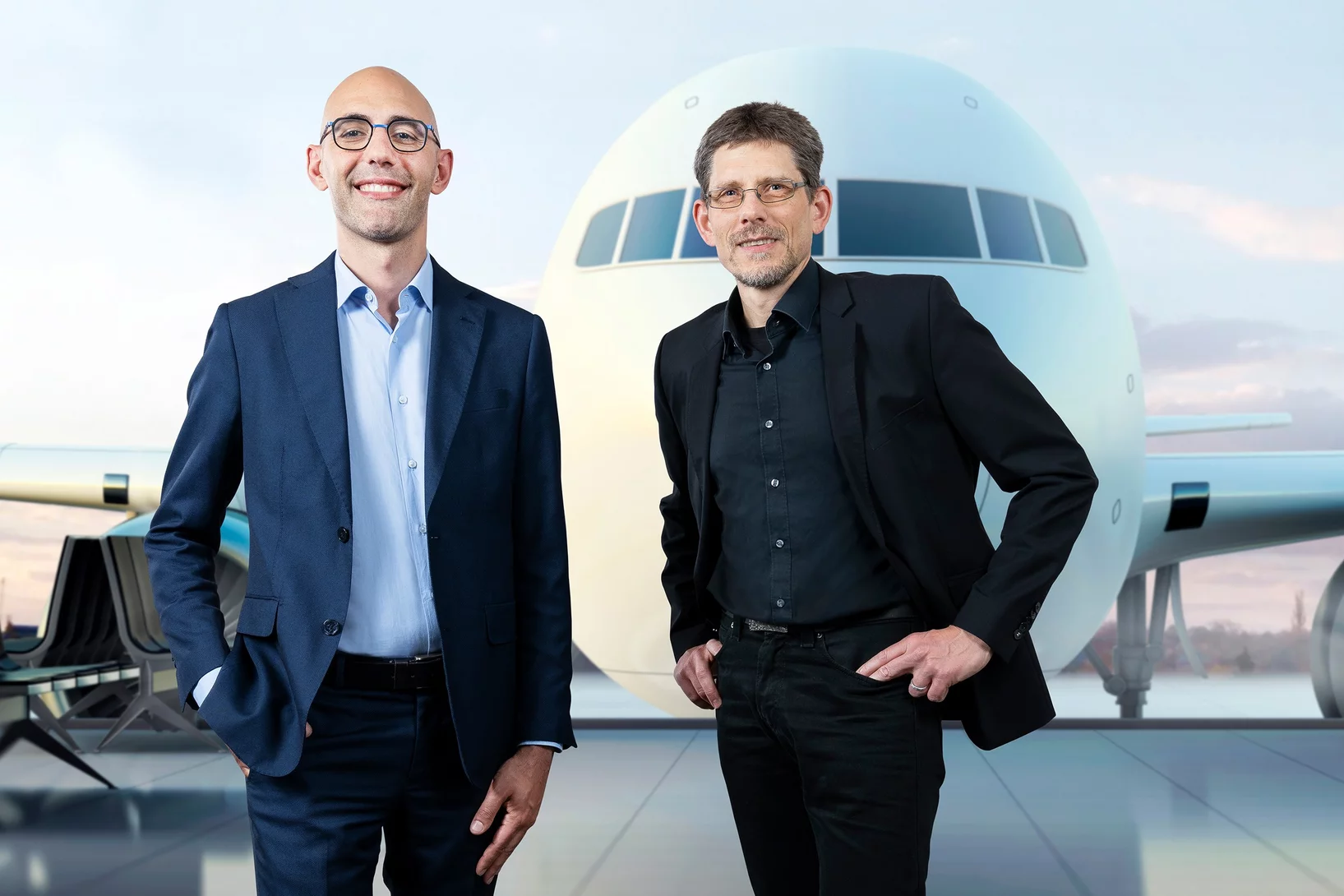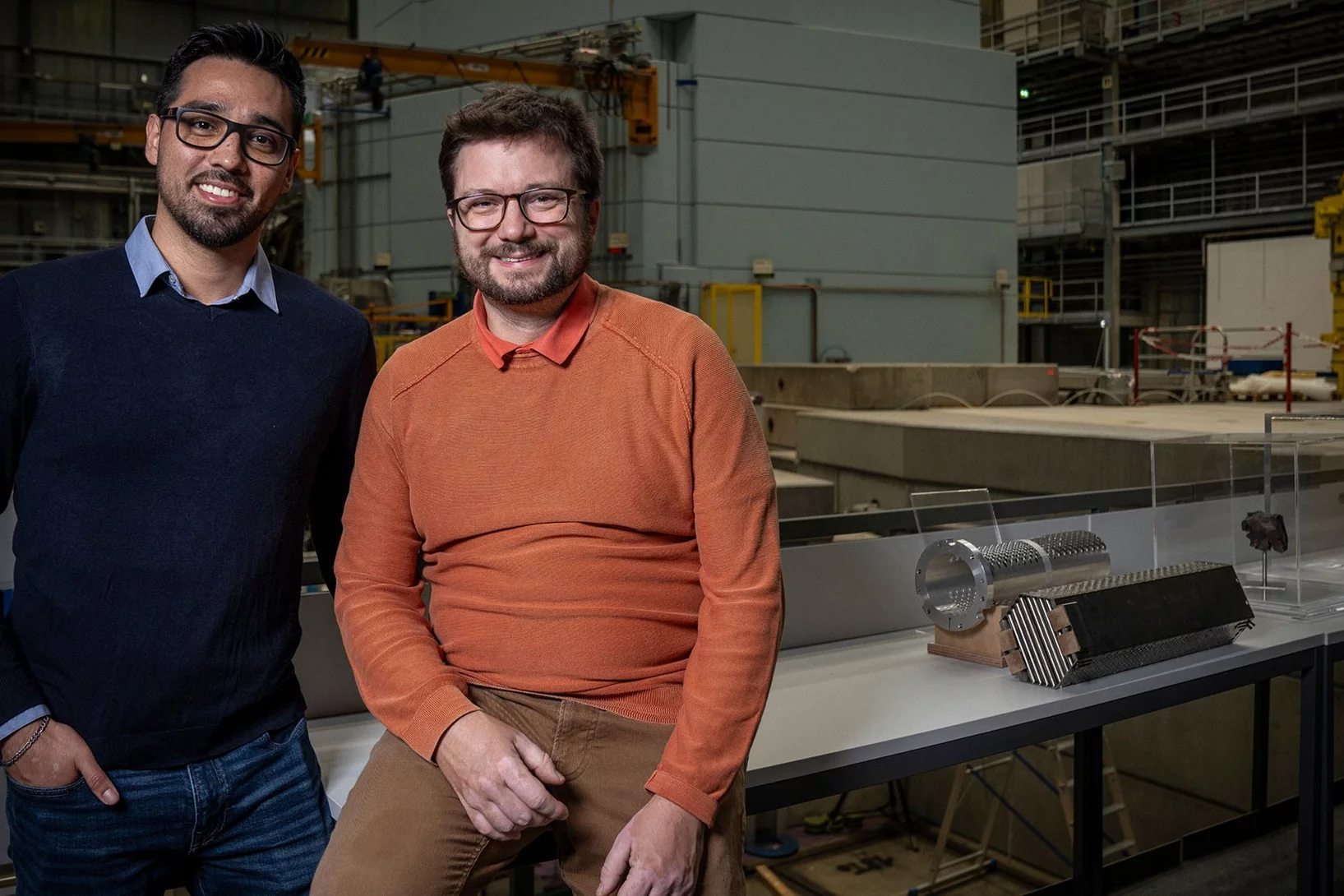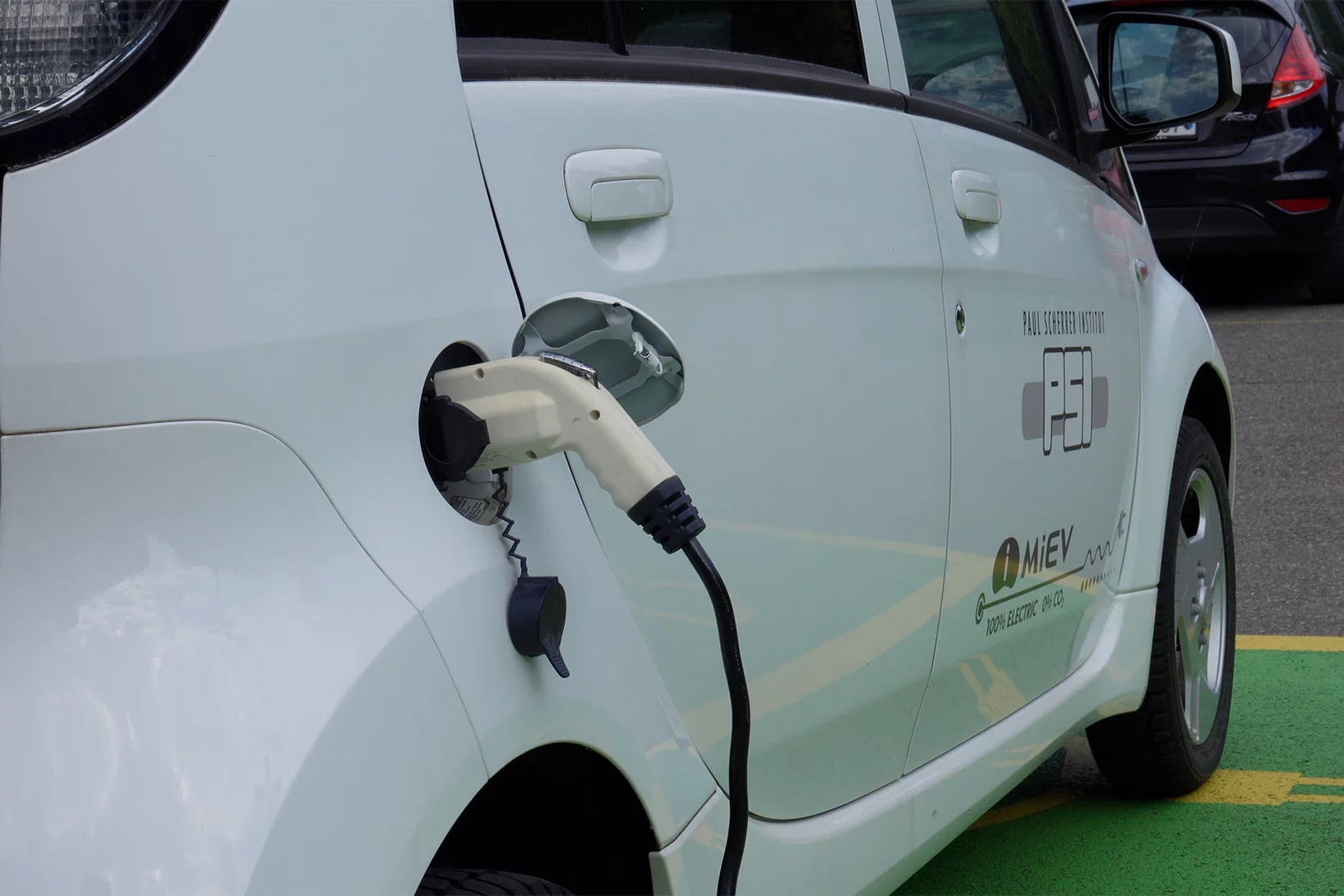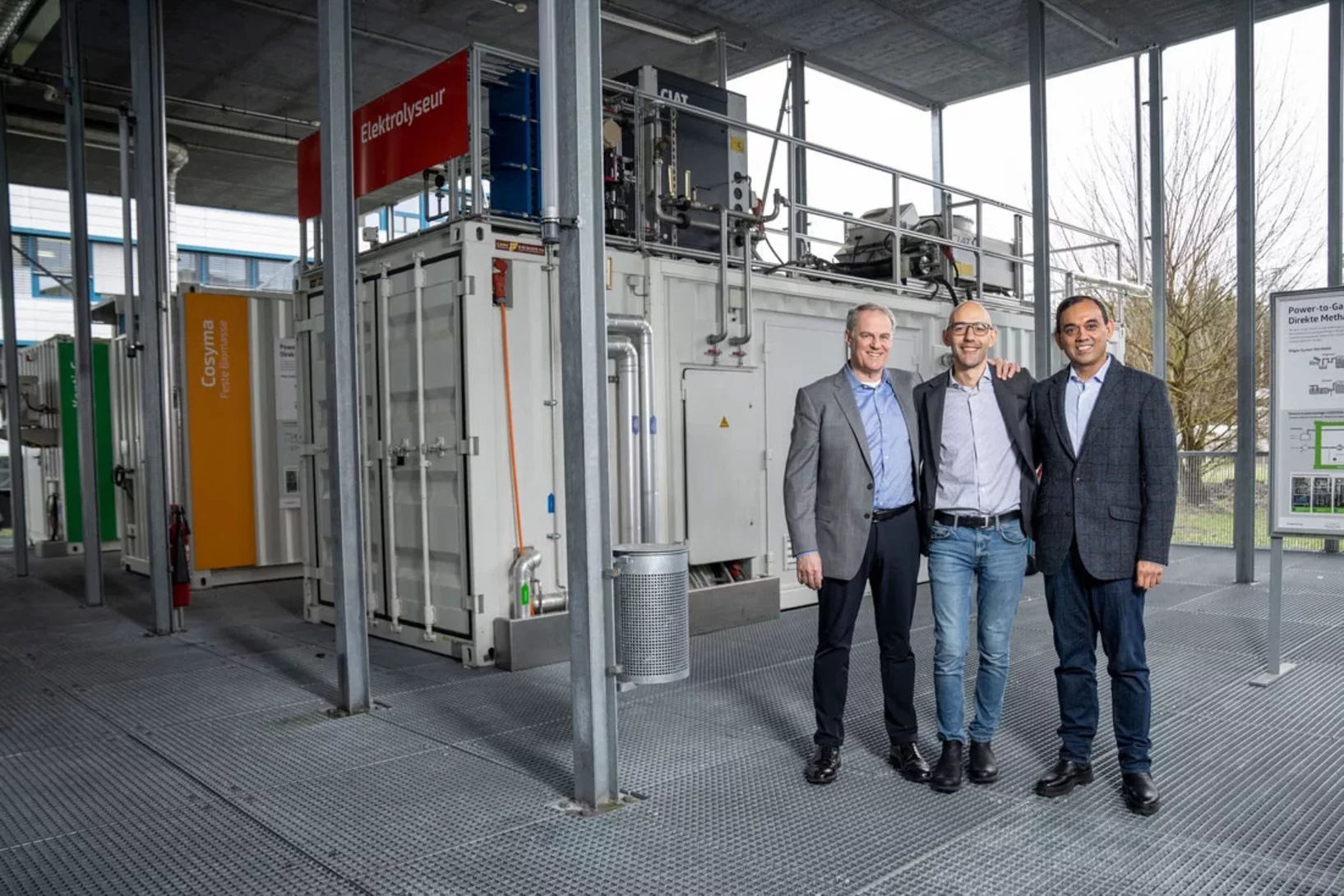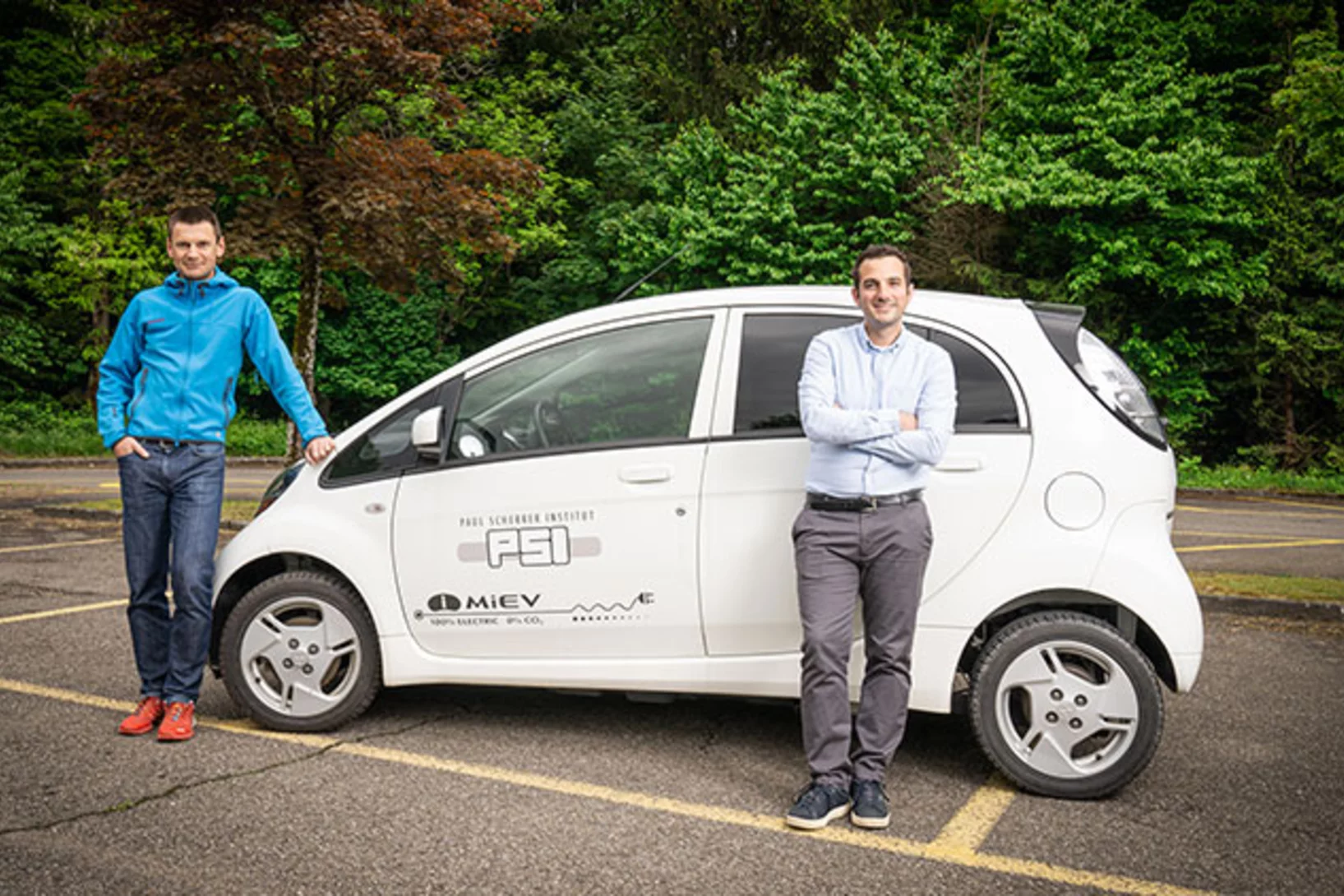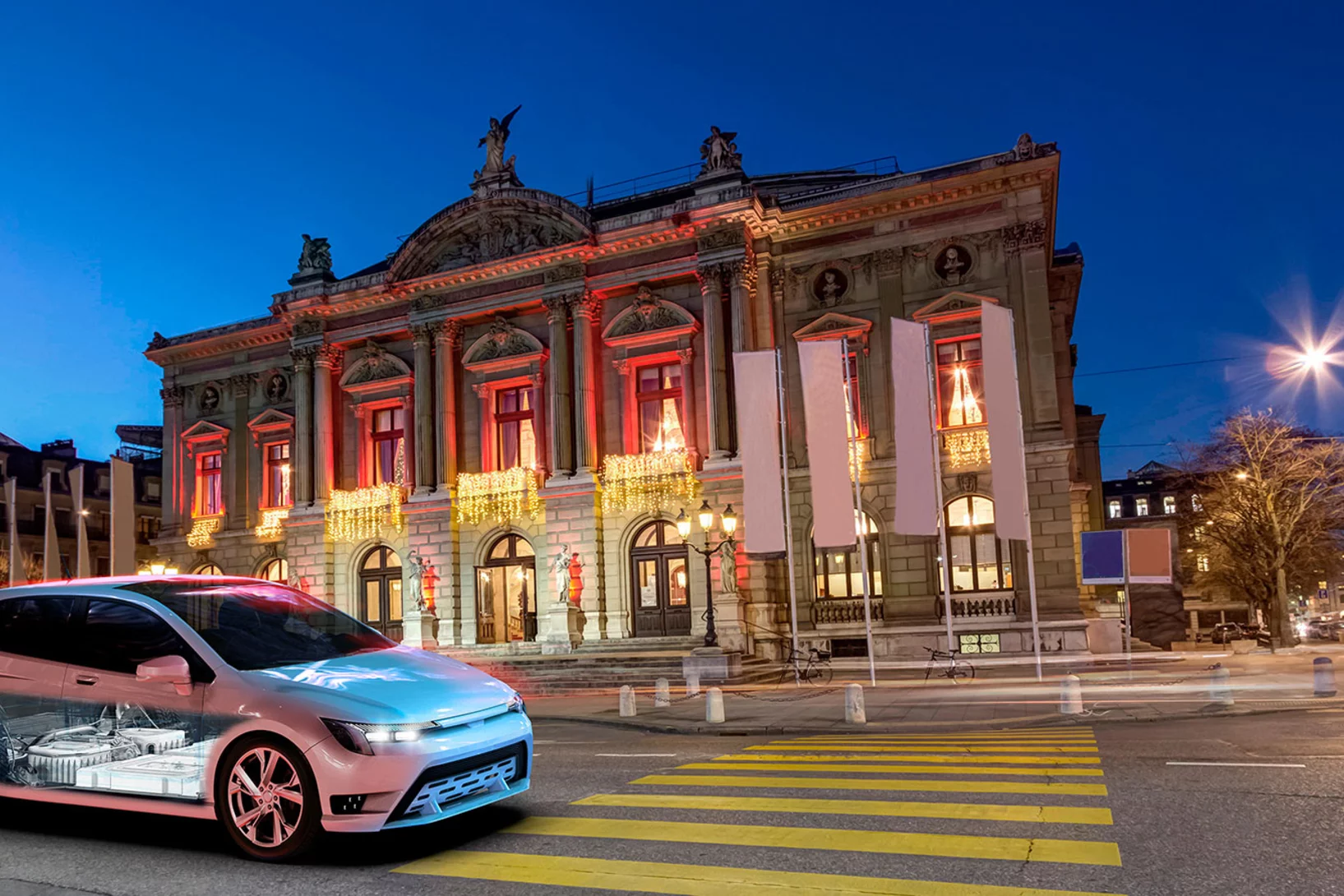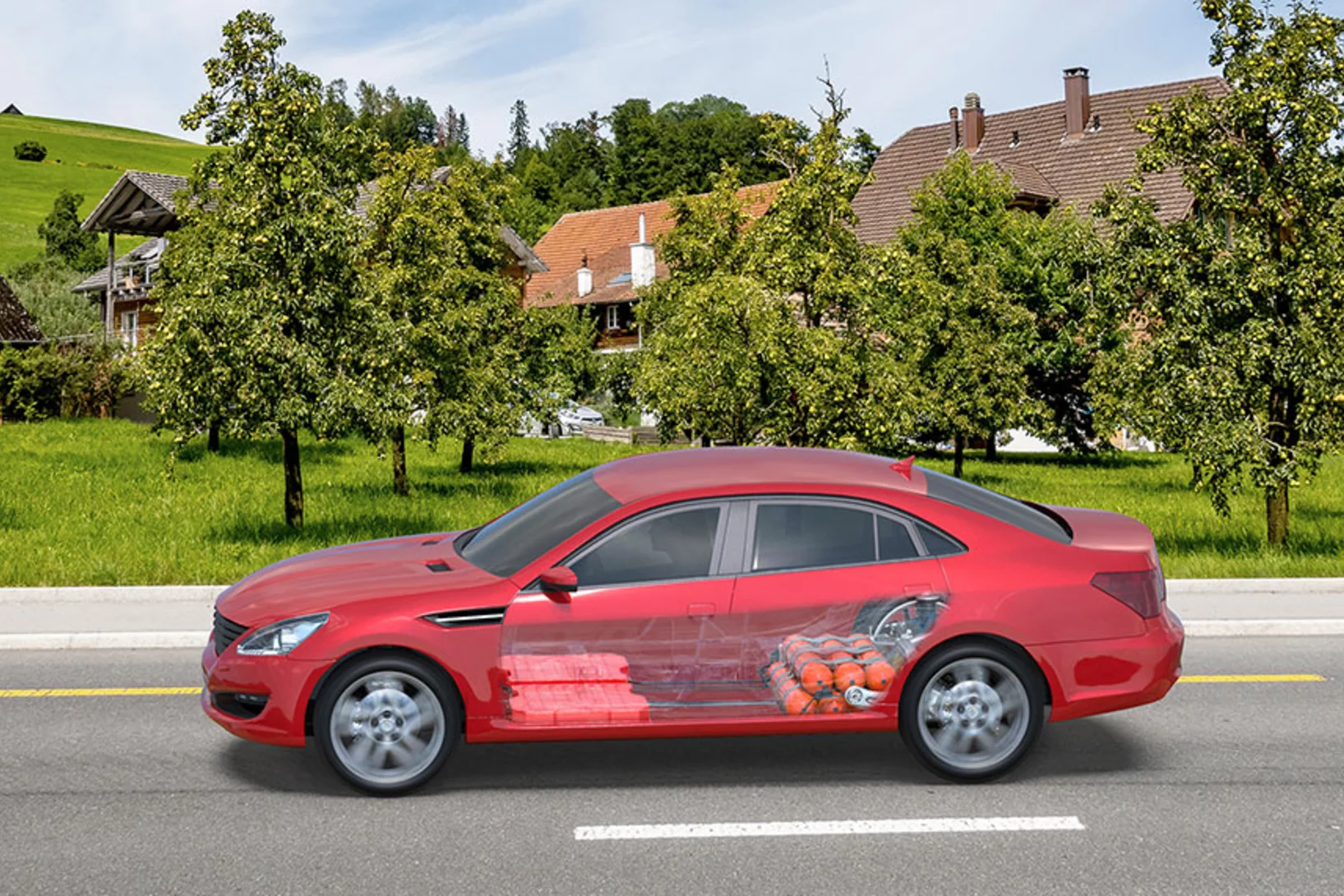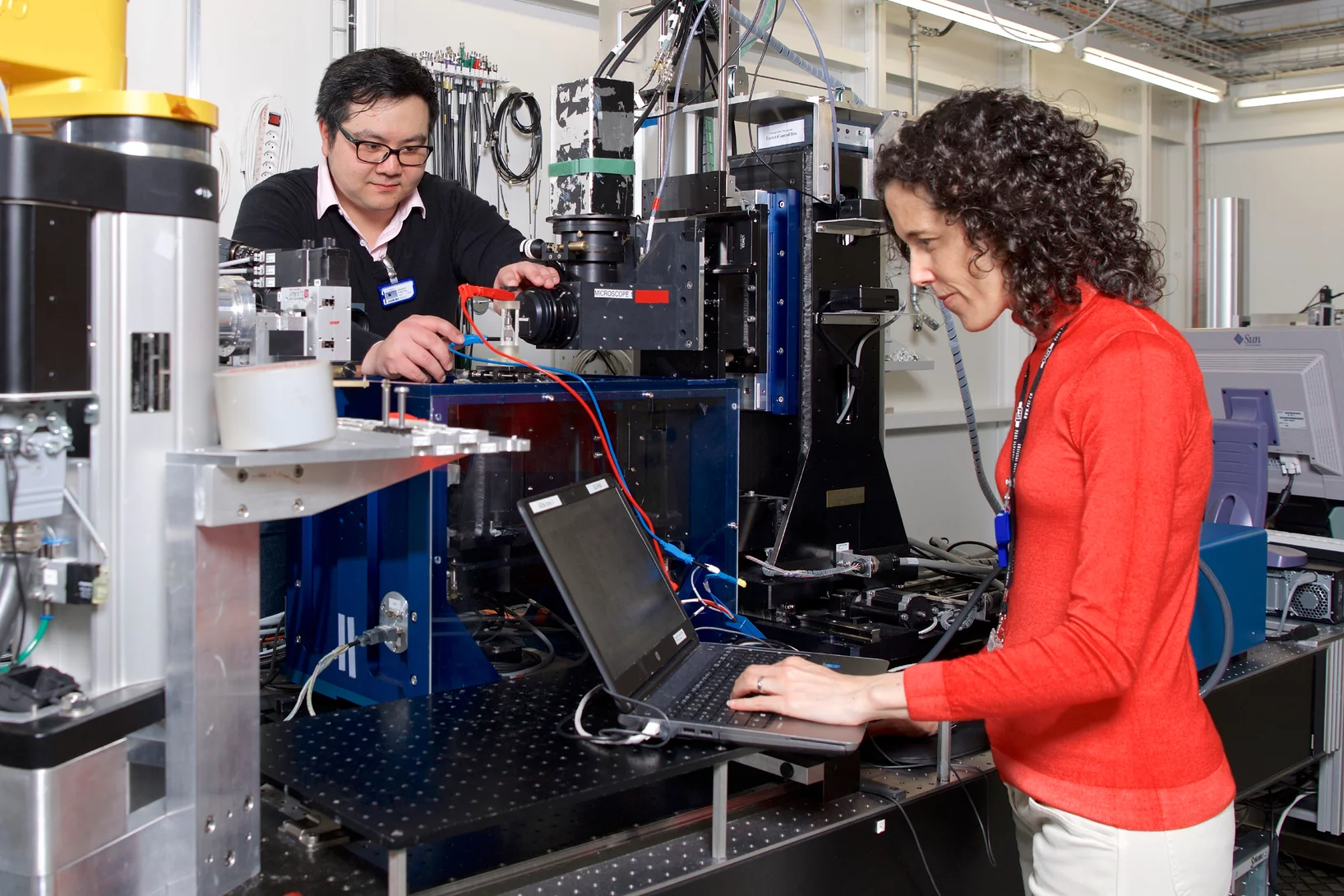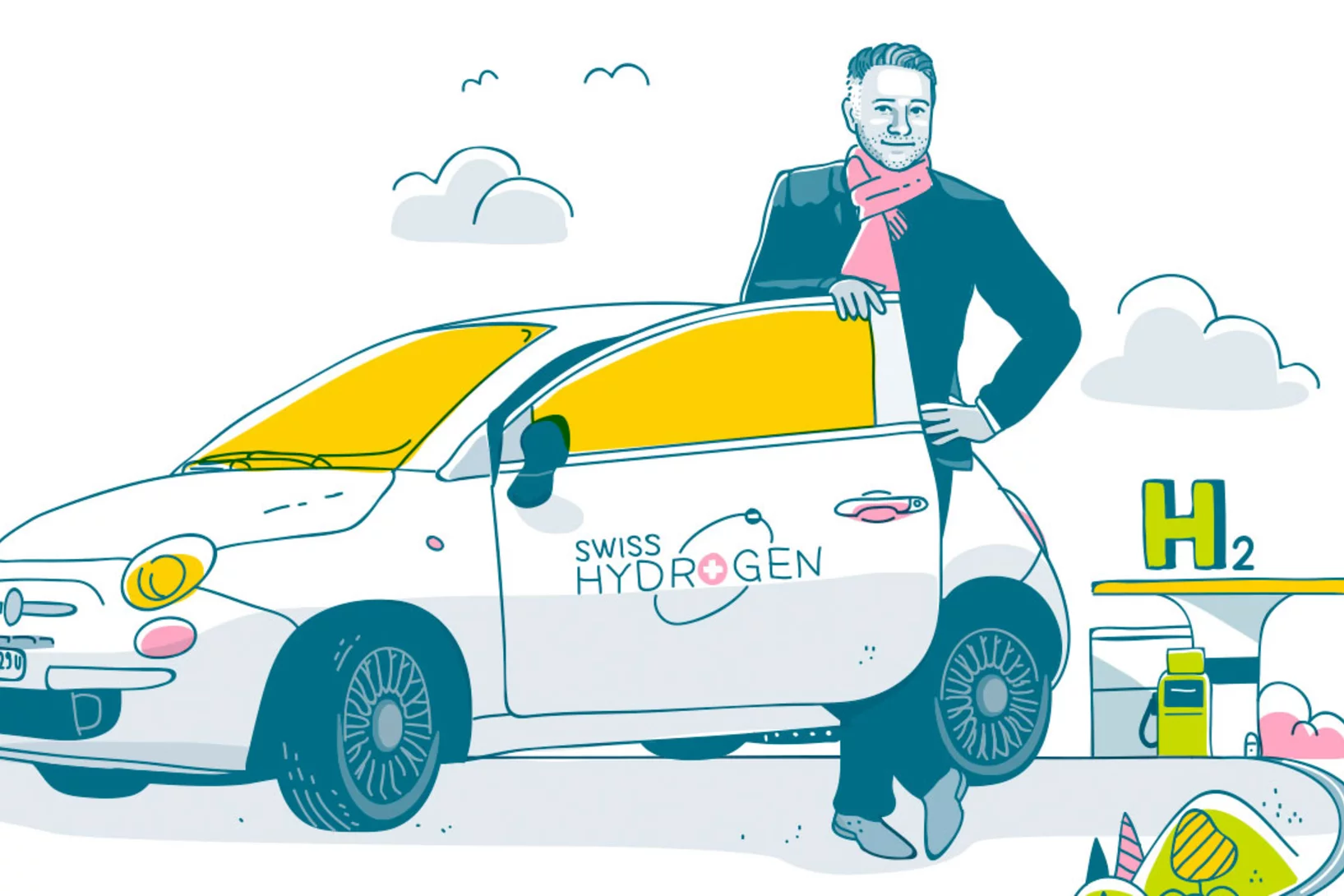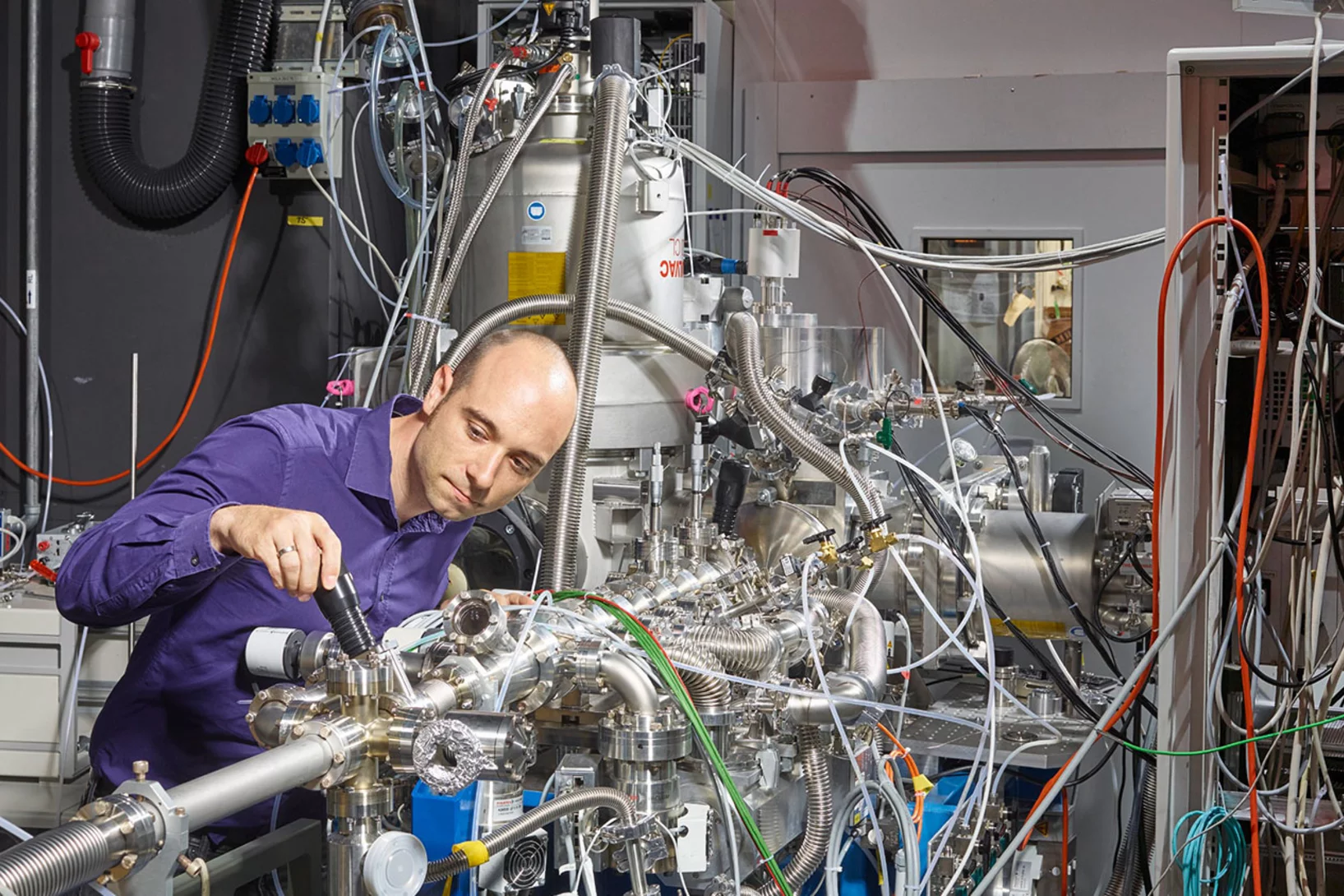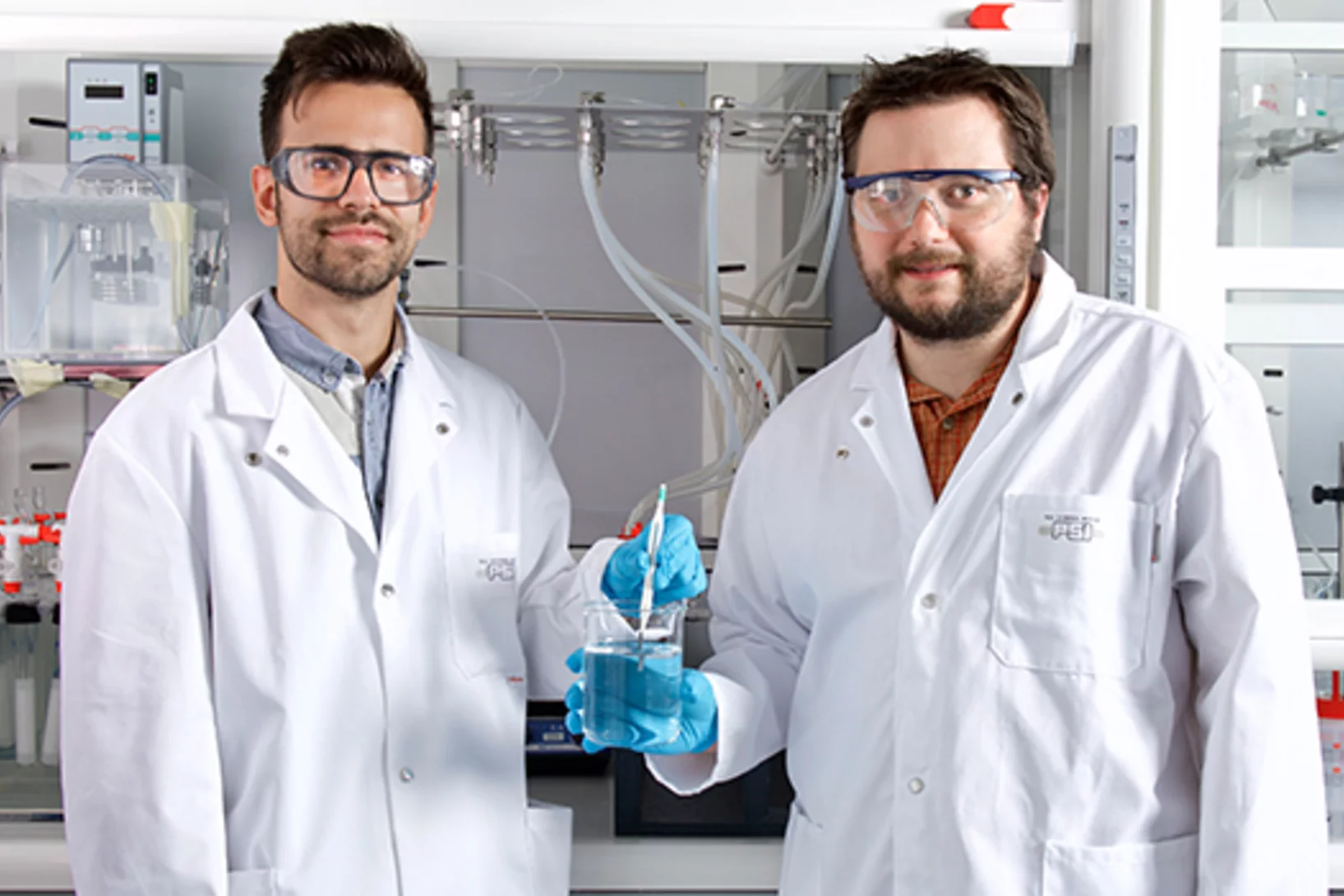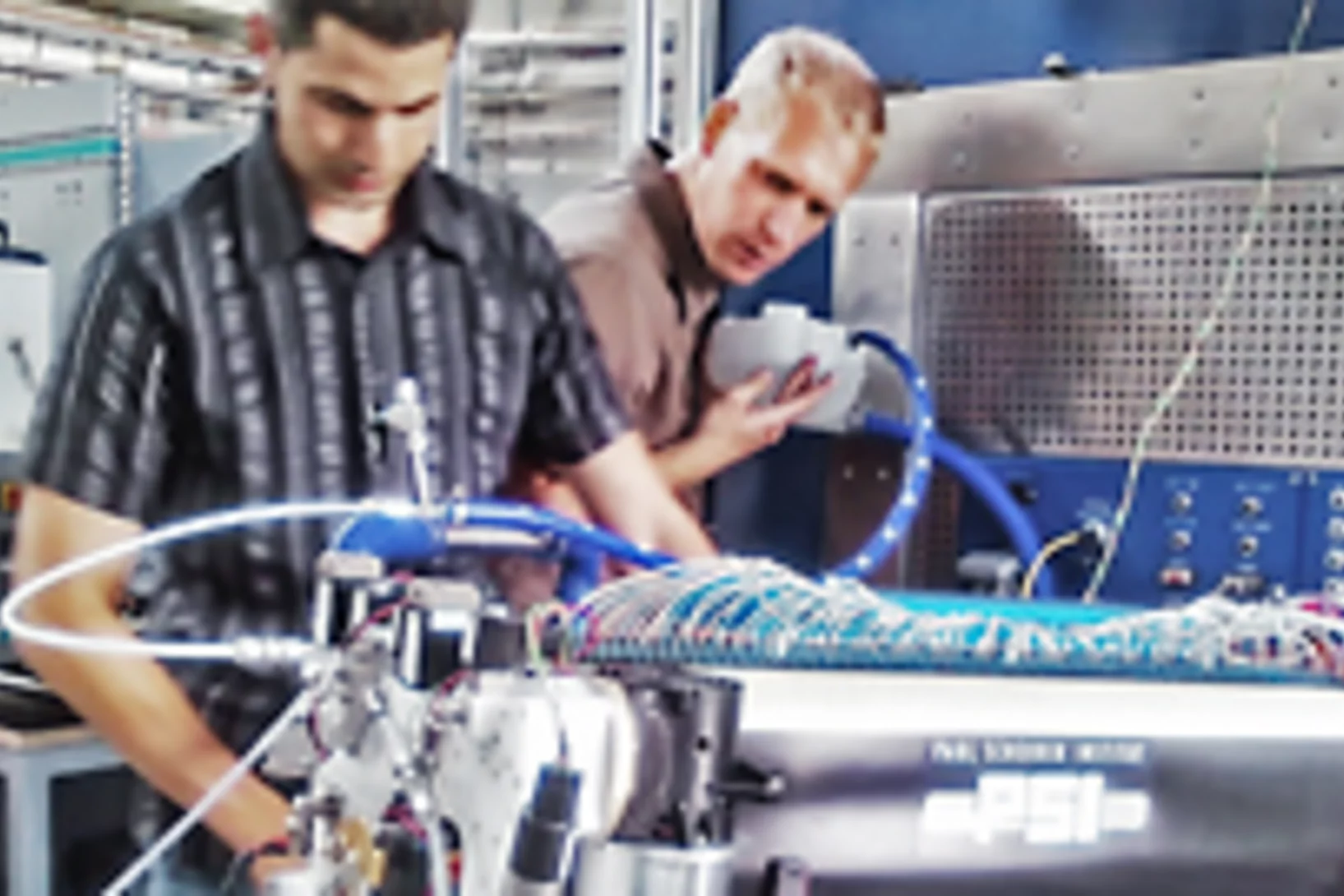Moving towards low-carbon road transport
Researchers at the Paul Scherrer Institute PSI have shown how road transport can be decarbonised through the clever integration of renewable energy systems.
Taking off with sustainable kerosene
Researchers around the world are working to find and optimise new ways of producing climate-neutral aviation fuel. At PSI, together with industry, they’re exploring a promising approach.
A complex promise
There’s more to climate-neutral aviation than just reducing emissions during flights. A PSI study analyses what is needed to achieve this long-term goal.
Fast as a plane, clean as a train
In a collaboration across Switzerland, researchers have evaluated the potential environmental impacts of so-called hyperloop systems.
Is climate-neutral air travel possible?
Air transport too is to become climate-neutral – how can sustainable fuels, like those developed at PSI, contribute to this?
Better batteries for electric cars
PSI researchers make physical and chemical changes in batteries visible.
How can cobalt be reduced in EV batteries?
The electrification of transport is increasing. This means, more batteries are needed. However, some of these batteries contain an extremely problematic raw material: cobalt. PSI is researching alternatives.
Climate-neutral air travel: Is it possible?
Above all, meeting this goal will require sustainable fuels and a reduction in air traffic.
A greener alternative for aviation fuel
Air travel with no carbon footprint – PSI and the Metafuels AG develop a new technology to produce sustainable aviation fuel.
Green fuels for aviation
In a new initiative, PSI and Empa want to jointly develop a process for producing kerosene from renewable resources.
Life cycle assessment of cars – new web tool helps consumers and researchers
Decision support for car buyers: Researchers at the Paul Scherrer Institute have developed a web tool called the Carculator that can be used to compare the environmental performance of passenger cars in detail.
"Electric is already the right choice today"
An interview on automotive power systems with Christian Bauer, a scientist at PSI's Laboratory for Energy Systems Analysis who specialises in life cycle and sustainability analyses.
Make way for electric cars
Petrol, diesel, fuel cell or electric – which is the automobile of the future? A PSI study has examined the overall climate impact of various vehicle engines in use today and also projected it to the year 2040.
Toward better motors with X-ray light
Making Switzerland's road traffic fit for the future calls for research, first and foremost. In the large-scale research facilities of PSI, chemists and engineers are investigating how to improve the efficiency of motors and reduce their emissions.
Observing solid-state batteries during deformation
PSI researchers have observed mechanical processes in solid-state batteries with unprecedented precision. Using X-ray tomography at the Swiss Light Source SLS, they discovered how fissures inside the batteries propagate. These insights can help to make batteries for electric cars or smartphones safer and more efficient.
Profitable for both sides
The young company Swiss Hydrogen is located in Fribourg. Here work is under way on competitive high-performance fuel cells that could be used in environmentally friendly vehicles or deployed as stationary power generators. In the company's collaboration with PSI, as CEO Alexandre Closset explains in this interview, both sides profit.
Fuel and chemicals from plant waste
Lignin, as a constituent of many plants, accumulates in large quantities and could theoretically be used as a precursor material for production of fuels and chemicals. Researchers at the Paul Scherrer Institute PSI and ETH Zurich have developed a method with which the processes that take place in the catalytic breakdown of lignin can be observed in detail. The knowledge thus gained could enable targeted improvement of production methods in the future.
Water pathways make fuel cells more efficient
Researchers from the Paul Scherrer Institute (PSI) have developed a coating technique in the laboratory conditions that could raise the efficiency of fuel cells. The PSI scientists have already applied to patent the technique, which is suitable for mass production.
Potenzial einer kostengünstigen Brennstoffzelle für Autos aufgezeigt
Das Paul Scherrer Institut PSI und die Belenos Clean Power AG haben ein Brennstoffzellensystem entwickelt, das das Potenzial aufweist, kostengünstig in einen Kleinwagen eingebaut zu werden, der dann über seine Lebenszeit ähnlich viel kosten würde wie ein herkömmliches Auto. Für diesen wichtigen Schritt in Richtung umweltfreundliche Mobilität erhalten PSI und Belenos den Watt d’Or 2011.This news release is only available in French and German.

